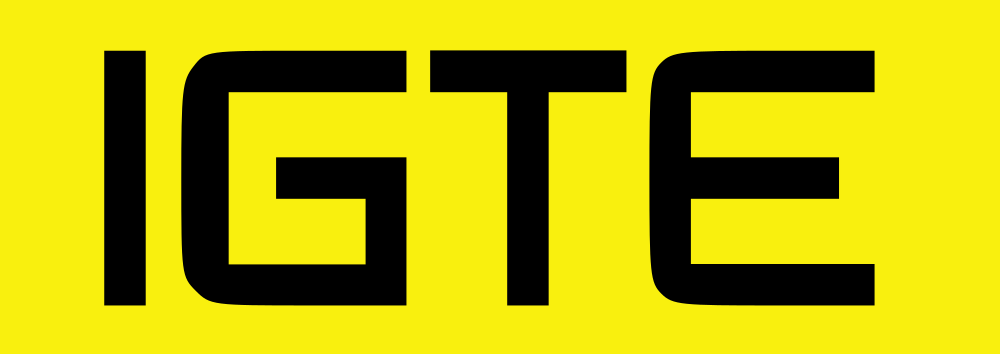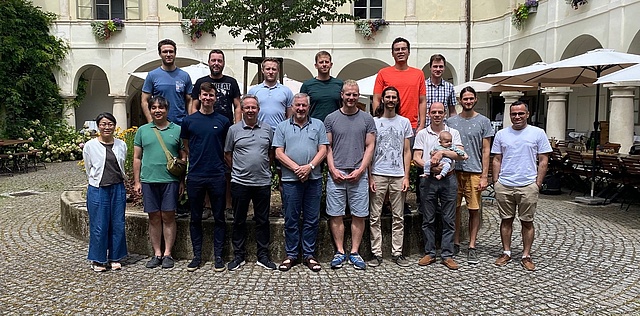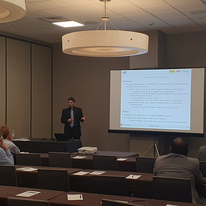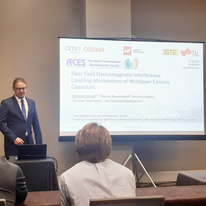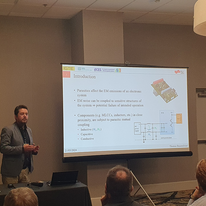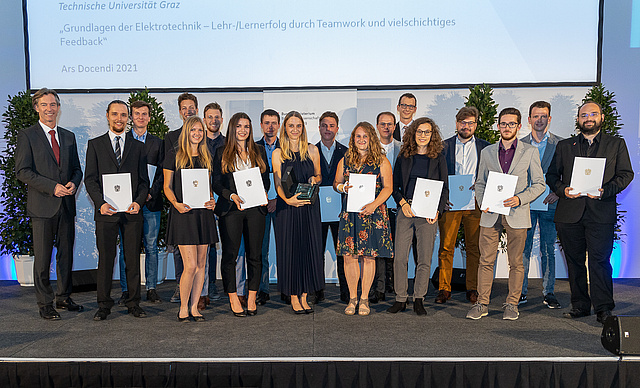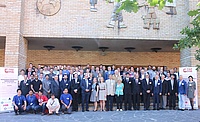Austrian Mechanics Day
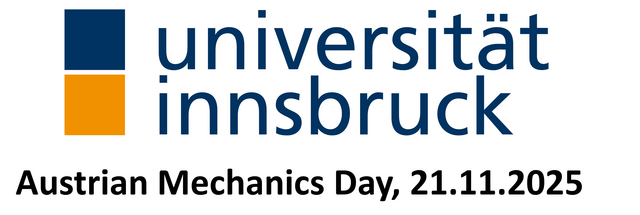
The IGTE team contributed to the Austrian Mechanics Day, 21.11.2025, with the following talk:
- A magneto-mechanical constitutive model and its application in device simulations
Klaus Roppert
NVHH 2025

The IGTE team contributed to NVHH 2025 with the following paper:
- Design of acoustic absorbers based on local resonant acoustic metamaterials
Manfred Kaltenbacher, Felicitas Spörk, Dominik Mayrhofer
Kleinheubacher Tagung 2025
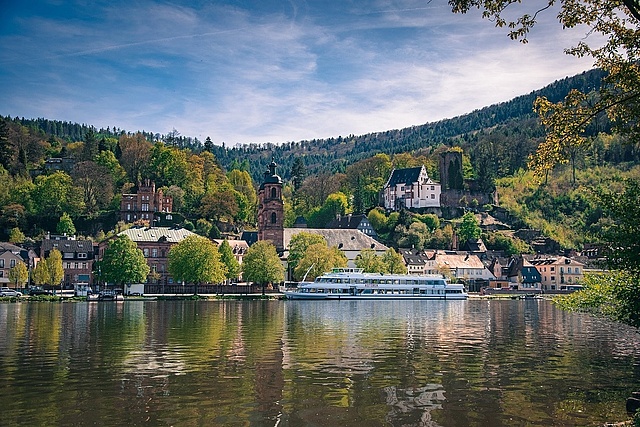
The IGTE team contributed to the Kleinheubacher Tagung 2025 with a keynote talk by Manfred Kaltenbacher on Hysteresis modelling and efficient finite element formulation for computational electromagnetics.
EMC Europe 2025

The IGTE team contributed to EMC Europe 2025 with the following paper:
- Challenges in the EMC Characterization of a CIS Camera Module for Medical and Consumer Applications
Patrick Wiesenhofer1, Dominik Kreindl1,2, Bernhard Weiss1, Thomas Bauernfeind2, Christian Stockreiter1
1ams OSRAM AG, Austria
2Institute of Fundamentals and Theory in Electrical Engineering, Graz University of Technology, Austria
Compumag 2025

The IGTE team contributed to Compumag 2025 with the following eight papers:
- An Efficient Hysteresis Loss Evaluation Considering Magneto-Elastic Effects using the Stepwise Monotonic Hysteresis Model
Lukas Daniel Domenig1, Klaus Roppert1,2, Laurent Daniel3,4, Manfred Kaltenbacher1, Herbert De Gersem2 - A Macroscopic Magneto-Elastic Vector Hysteresis Model for Electromagnetic Device Simulations
Klaus Roppert1,2, Lukas Domenig1, Manfred Kaltenbacher1, Herbert De Gersem2, Laurent Daniel3,4 - A New Anhysteresis Curve for Magnetic Materials
Alexander Sauseng1, Manfred Kaltenbacher1, Klaus Roppert1 - Data Driven Parameter Identification of Hysteresis Models for Cut Steel Sheets
Eniz Mušeljić1, Alice Reinbacher-Köstinger1, Andreas Gschwentner1, Manfred Kaltenbacher1 - Identification of the Magnetic Permeability of Ferrite Materials based on Time Domain Measurements
Barnabas Kullmann5, Christian Riener6, Thomas Bauernfeind1, Sandor Bilicz5 - Design Space Reduction in Electric Machine Optimization via Global Sensitivity Analysis
Alice Reinbacher-Köstinger1, Gian Marco Melito7, Larissa Schönegger1, Michael Wiesheu10, Theodor Komann9, Sebastian Schöps10 - Determination of Local Magnetic Anhysteretic Behavior in Cut Electrical Steel Sheets using Local Measurements and an Inverse Scheme
Andreas Gschwentner1, Manfred Kaltenbacher1, Klaus Roppert1 - Inverse scheme for the local determination of magnetic material properties of electric steel sheets near cutting edges
Manfred Kaltenbacher1, Andreas Gschwentner1, Stefan Ulbrich9, Barbara Kaltenbacher8
1Institute of Fundamentals and Theory in Electrical Engineering, TU Graz
2Institute for Accelerator Science and Electromagnetic Fields (TEMF), TU Darmstadt
3Université Paris-Saclay, CentraleSupélec, CNRS, Laboratoire de Génie Électrique et Électronique de Paris
4Sorbonne Université, CNRS, Laboratoire de Génie Électrique et Électronique de Paris
5Department of Broadband Infocommunications and Electromagnetic Theory, Budapest University of Technology and Economics
6Silicon Austria Labs
7Institute of Mechanics, TU Graz
8AAU Klagenfurt
9Department of Mathematics, TU Darmstadt
10Computational Electromagnetics Group, TU Darmstadt
POSTER 2025



The IGTE team contributed to POSTER2025 with the following contributions:
- Effects of hybrid turbulence modelling on aeroacoustic noise generation in automotive door gaps
Thomas Brunner
2nd Prize, Best Poster Award - Characterisation of a Low-Cost Acoustic Chamber
Patricia Zofia Jesionkowska, Florian Kraxberger
2nd Prize, Best Poster Award - Simulative Evaluation of the Whistling Potentiality of Pinhole Apertures
Jan Boysen, Andreas Wurzinger
1st Prize, Best Poster Award - Exploring the Loss Landscape of Physics Informed Neural Networks in Room Acoustics
Aneta Furmanová
3rd Prize, Best Poster Award - Developing a digital twin of a human knee prosthesis for acoustic analysis
Andreas Wurzinger - Simulative Evaluation of the Whistling Potentiality of Pinhole Apertures
Jan Boysen
3rd Prize, Elevator Pitch
CEM 2025
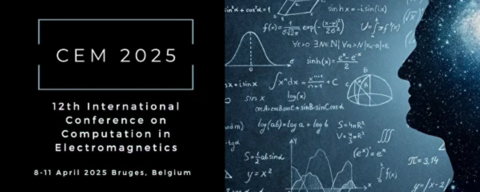
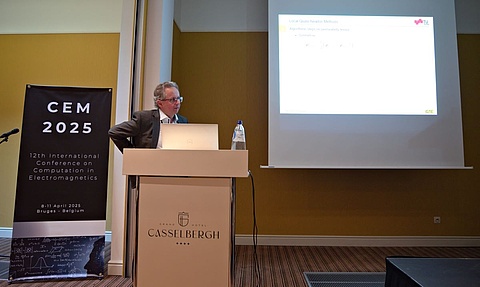
The IGTE team contributed to CEM 2025 with the following four papers and a keynote talk given by Prof. Kaltenbacher:
- Open Source Software for Coupled Field Simulation
M. Kaltenbacher1, D. Mayrhofer1, E. Museljic1, K. Roppert1, F. Toth2, F. Wein3
1 TU Graz, Institute of Fundamentals and Theory in Electrical Engineering
2 TU Wien, Institute of Mechanics and Mechatronics
3 FAU Erlangen, Department of Mathematics - Implementation of an Edge-Based H-Formulation in the Nonlinear Magnetostatic Case
L. D. Domenig, K. Roppert, M. Kaltenbacher
Institute of Fundamentals and Theory in Electrical Engineering, Graz University of Technology, Graz, Austria - Extracting Lumped-Element Parameters from a Finite Element Three-Phase Transformer Model – A Practical Approach
A. Sauseng, M. Kaltenbacher, K. Roppert
Institute of Fundamentals and Theory in Electrical Engineering, Graz University of Technology, Graz, Austria - Electrically Small Magneto-Electric Antennas For Shielding Efficiency Quantification In IC-Stripline Emission Tests
T. Bauernfeind, D. Kreindl
Institute of Fundamentals and Theory in Electrical Engineering, Graz University of Technology, Graz, Austria - Efficient Quasi-Newton Finite Element Formulations for Computational Electromagnetics
M. Kaltenbacher
Institute of Fundamentals and Theory in Electrical Engineering, Graz University of Technology, Graz, Austria
openIGTE 2025
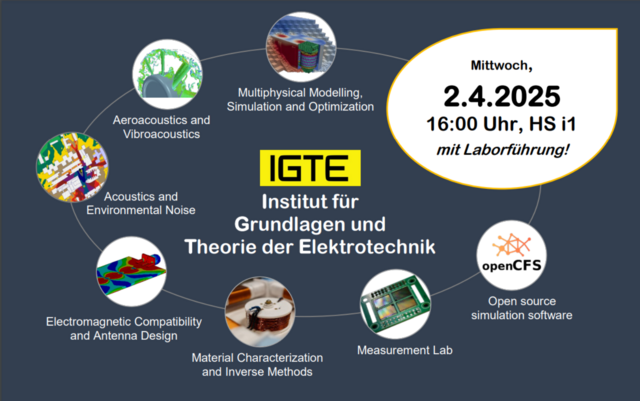
Vorstellung aktueller Projekte und Lehrveranstaltungen am IGTE
Das Institut für Grundlagen und Theorie der Elektrotechnik (IGTE) lädt alle interessierten Studierenden am 2.4.2025 ab 16:00h im HS i1 zum openIGTE ein.
Lernen Sie das Institut und seine Mitarbeiter*innen kennen und schauen Sie sich Live-Demos von Laborexperimenten an! Studierende, die auf der Suche nach ihrer Master- oder Bachelorarbeit sind, können sich über mögliche Themen informieren. Für Getränke und Snacks ist gesorgt.
DAS | DAGA 2025
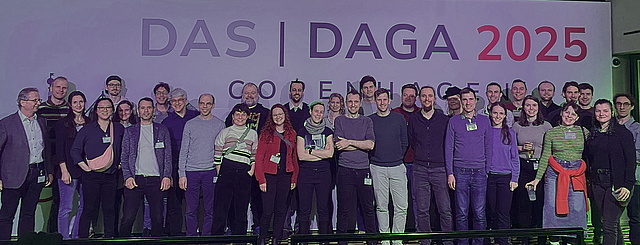
The IGTE team contributes to the DAS | DAGA 2025 with the following papers:
- Poster Award: Developing a digital twin for acoustic analysis of vibroacoustic
sound emissions due to flow-induced sound generation
Andreas Wurzinger1, Stefan Schoder1 - Vibroacoustic Investigation of the Thin-Walled Duct System
and Fan Housing in an Aeroacoustic Test Rig
Patrick Heidegger1, Felix Czwielong2, Stefan Schoder1, Stefan
Becker2, Manfred Kaltenbacher1 - Design of acoustic sound absorbers
Dominik Mayrhofer1, Felicitas Spork1, Manfred Kaltenbacher1 - A Comparison between Numerical and Experimental Investigations of a Enclosed Centrifugal Fan
Felix Czwielong2, Patrick Heidegger1, Christoph Heigl2, Manuel Lauber2, Florian Wachter2, Eman Bagheri2, Andreas Wurzinger1, Marco Fritzsche3, Lukas Tluczykont2, Christina Madl1, Stefan Schoder1, Manfred Kaltenbacher1, Stefan Becker2 - Self-similarity of free vibration decays in cantilever beams
Christian Adams1, Sebastian Oberst4 - Flow-induced sound simulation of a Mach 0.3/0.6 mixing layer
Stefan Schoder1 - Simulative Evaluation of the Whistling Potentiality of Pinhole Apertures
Jan Boysen1, Andreas Wurzinger1, Sven Olaf Neumann7, Stefan Schoder1 - Experimental Benchmarking of an Enclosed Centrifugal Fan for Fluid-Structure-Acoustic Interactions Investigations
Felix Czwielong2, Patrick Heidegger1, Christoph Heigl2, Manuel Lauber2, Andreas Wurzinger1, Marco Fritzsche3, Stefan Schoder1, Manfred Kaltenbacher1, Stefan Becker2 - Investigation of the influence of solution-dependent effects on ultrasound pulse-based sound generation principles
Dominik Mayrhofer1, Tobias Wilczacki1, Manfred Kaltenbacher1 - Experimental setup to map involved cognitive neuroscientific processing steps during sound recognition process
Julia Donnerer1, Florian Kraxberger1, Manfred Kaltenbacher1, Christian Adams1 - Influence of damping layers in locally resonant acoustic metamaterials on sound barrier performance
Dominik Mayrhofer1, Felicitas Spork1, Manfred Kaltenbacher1 - Outdoor sound propagation simulations using the Discontinuous Galerkin method: Preliminary results
Florian Kraxberger1, Stefan Schoder1, Christian Adams1, Manfred Kaltenbacher1 - Uncertainty Assessment in Analyzing the Similitude of a Vibrating Plate
Giada Cardellino8, Christian Adams1, Robert Feldmann8, Sergio De Rosa5, Francesco Franco5, Giuseppe Petrone5, Tobias Melz6,8
1 TU Graz, Institut fur Grundlagen und Theorie der Elektrotechnik
2 Lehrstuhl fur Stromungsmechanik - FAU Erlangen
3 Polytec GmbH
4 University of Technology Sydney, Centre for Audio,
Acoustics and Vibration
5 University of
Naples Federico II, Department of Industrial Engineering
6 Fraunhofer LBF
7 Fachhochschule Kiel, Fachb. Maschinenwesen
8 TU Darmstadt, Fachgebiet SAM
openIGTE 2024
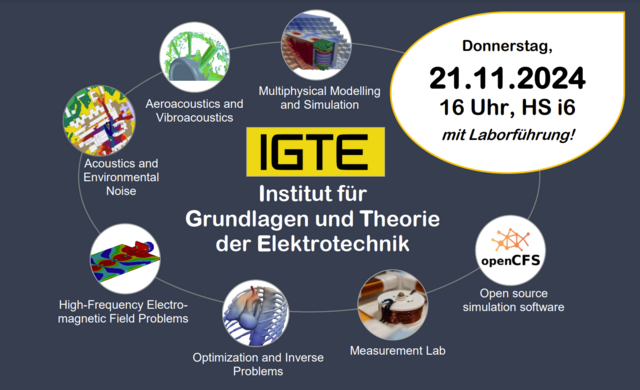
Vorstellung aktueller Projekte und Lehrveranstaltungen am IGTE
Das Institut für Grundlagen und Theorie der Elektrotechnik (IGTE) lädt alle interessierten Studierenden am 21.11.2024 ab 16:00h im HS i6 zum openIGTE ein.
Lernen Sie das Institut und seine Mitarbeiter*innen kennen und schauen Sie sich Live-Demos von Laborexperimenten an! Studierende, die auf der Suche nach ihrer Master- oder Bachelorarbeit sind, können sich über mögliche Themen informieren. Für Getränke und Snacks ist gesorgt.
29. DEGA-Workshop "Physikalische Akustik"
The IGTE team contributes to the Fall Workshop of the Technical Committee Physical Acoustics of the German Acoustical Society with the following presentations:
- Dämpfung freier Schwingungen im Hilbert-Huang-Spektrum
Christian Adams1,2, Sebastian Oberst2 - Advanced Damping Control Techniques for Plate Structures
Giada Cardellino3,4, Christian Adams1, Francesco Franco4, Giuseppe Petrone4, Sergio De Rosa4 - Developing a digital twin of a human knee prosthesis for acoustic analysis
Andreas Wurzinger1, Bernhard Mayr-Mittermüller5, Harald Sima5, Stefan Schoder1
1 TU Graz
2 University of Technology Sydney
3 TU Darmstadt
4 Universität Federico II Neapel
5 Otto Bock Healthcare Products GmbH
EMC COMPO 2024
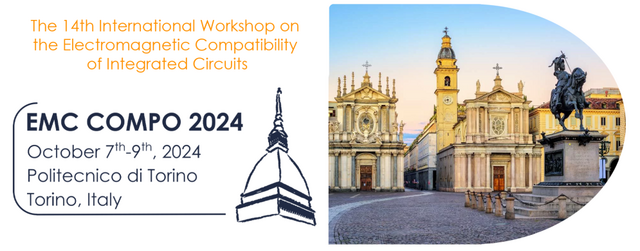
The IGTE team contributes to the EMC COMPO 2024 with the following paper:
- A Simulation Workflow for Predicting IC Stripline Radiated Emissions of Bond Wire-Based Systems
Kreindl Dominik1,2, Weiss Bernhard1, Stockreiter Christian1, Bauernfeind Thomas2, Kaltenbacher Manfred2
1: ams OSRAM Group, Tobelbaderstrasse 30, 8141 Unterpremstaetten, Austria
2: Institute of Fundamentals and Theory in Electrical Engineering, Inffeldgasse 18, 8010 Graz, Austria
IGTE Symposium 2024
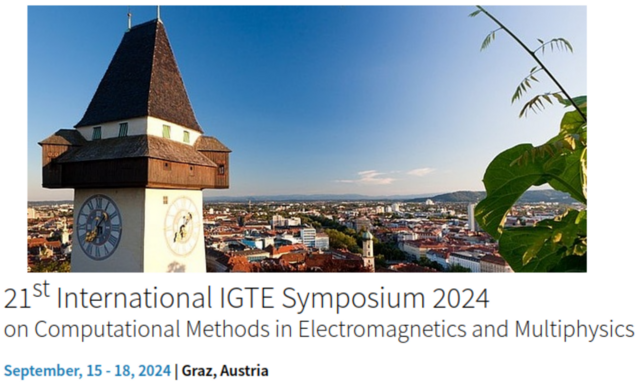
The IGTE team contributes to IGTE Symposium 2024 with the following papers:
- Global convergence of iterative solvers for magnetic field problems using local quasi-Newton updates
Engertsberger Felix2,3, Egger Herbert2, Domenig Lukas1, Roppert Klaus1, Kaltenbacher Manfred1 - Comparison of Different Workflow Strategies for EMC Simulations in Commercial CEM Suites
Kreindl Dominik1,4, Bauernfeind Thomas1, Weiss Bernhard4, Stockreiter Christian4, Kaltenbacher Manfred1 - 3D Component and PCB Modeling for High Frequency EMC Problems
Riener Christian1,5, Bauernfeind Thomas1 - Determination of local magnetic properties: Inverse Scheme based on adjoined method
Kaltenbacher Manfred1, Gschwentner Andreas1, Reinbacher-Köstinger Alice1, Domenig Lukas1, Roppert Klaus1, Ulbrich Stefan6, Kaltenbacher Barbara7 - Data driven parameter identification of magnetic properties in steel sheets
Mušeljić Eniz1, Reinbacher-Köstinger Alice1, Gschwentner Andreas1, Kaltenbacher Manfred1 - Determination of Local Magnetic Properties: Optimal Design of Experiments
Reinbacher-Köstinger Alice1, Gschwentner Andreas1, Mušeljić Eniz1, Ulbrich Stefan6, Kaltenbacher Manfred1 - Investigation of H-Bridge PCB in time domain using reduced order Darwin model
Kvasnicka Samuel1,5, Roppert Klaus1,5, Riener Christian1,5, Bauernfeind Thomas1,5, Kaltenbacher Manfred1,5 - Sequential Bayesian Experimental Design for Efficiency Maps using Gaussian Processes
Reinbacher-Köstinger Alice1, Dhakal Pawan Kumar8, Heidarikani Kourosh8, Mušeljić Eniz1, Komann Theodor6, Muetze Annette8, Ulbrich Stefan6, Kaltenbacher Manfred1 - arterioscope.sim: Simulation platform for blood flow and its interaction with electric fields
Krispel Thomas1, Badeli Vahid1, Jafarinia Alireza1, Reinbacher-Köstinger Alice1, Tronstad Christian10, Ranftl Sascha13, Martinsen Orjan Grottem10,11, Kalvoy Havard10, Hisdal Jonny12, Kaltenbacher Manfred1, Hochrainer Thomas9 - Determination of local Magnetic Material Properties: MFL-based Measurement System
Gschwentner Andreas1, Roppert Klaus1, Kaltenbacher Manfred1 - Including the Simplified Multiscale Model in the Energy-Based Hysteresis Framework
Roppert Klaus1, Daniel Laurent14,15 - Macroscopic Inline Determination of Nonlinear Material Parameters for Rod Material
Sauseng Alexander1, Raninger Peter16, Kaltenbacher Manfred1, Roppert Klaus1 - A Method to Evaluate the Hysteresis Loss in Permanent Magnet Synchronous Machines
Domenig Lukas1, Roppert Klaus1, De Gersem Herbert17, Klatenbacher Manfred1
1: Institute for Fundamentals and Theory in Electrical Engineering, Inffeldgasse 18/1, A-8010 Graz
2: Institute of Numerical Mathematics, Altenberger Straße 69, A-4040 Linz
3: Johann Radon Institute for Computational and Applied Mathematics, Altenberger Straße 69, A-4040 Linz
4: ams OSRAM Group, Tobelbaderstrasse 30, A-8141 Unterpremstaetten, Austria
5: Silicon Austria Labs, TU-Graz SAL GEMC Lab, Austria
6: Department of Mathematics, TU Darmstadt, Dolivostraße 15, 64293 Darmstadt, Germany
7: Department of Mathematics, AAU Klagenfurt, Universitätsstrasse 65-67, 9020 Klagenfurt, Austria
8: Institute of Electric Drives and Power Electronic Systems, TU Graz, Inffeldgasse 18/1, 8010 Graz, Austria
9: Institute of Strength of Materials, Graz University of Technology, Graz, Austria
10: Department of Clinical and Biomedical Engineering, Oslo University Hospital, Oslo, Norway
11: Department of Physics, University of Oslo, Oslo, Norway
12: Section of Vascular Investigations, Oslo University Hospital, Oslo, Norway
13: Institute of Theoretical and Computational Physics, Graz University of Technology, Graz, Austria
14: Université Paris-Saclay, CentraleSupélec, CNRS, Laboratoire de Génie Électrique et Électronique de Paris, 91192,
Gif-sur-Yvette, France
15: Sorbonne Université, CNRS, Laboratoire de Génie Électrique et Électronique de Paris, 75252, Paris, France
16: Materials Center Leoben, Roseggerstraße 12, A-8700 Leoben
17: Institute for Accelerator Science and Electromagnetic Fields (TEMF), TU Darmstadt, Darmstadt, Germany
EMI 2024 IC
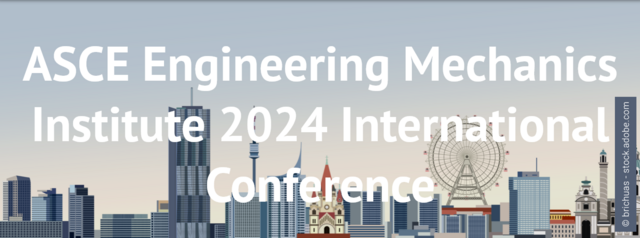
The IGTE team contributes to the EMI International Conference with the following contribution:
- Automatic differentiation and neural networks for parameter identification of hysteresis models
Manfred Kaltenbacher, Eniz Museljic, Klaus Roppert
Inter-Noise 2024
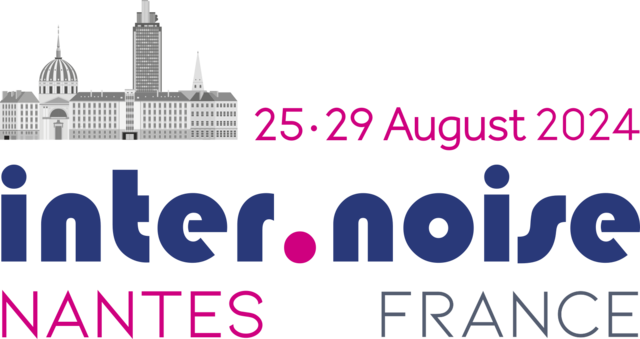
The IGTE team contributes to Inter-Noise 2024 with the following papers:
- Prediction of vibro-acoustic sound emissions based on mapped structural dynamics
Andreas Wurzinger1, Patrick Heidegger1, Florian Kraxberger1, Bernhard Mayr-Mittermüller2, Harald Sima2, Manfred Kaltenbacher1, Stefan Schoder1 - Comparing outdoor sound propagation simulations based on geometrical and numerical methods
Florian Kraxberger1, Christian Adams1, Julia Donnerer1, Manfred Kaltenbacher1, Stefan Schoder1 - Sound Source Localization at the Rolling Tire
Jonathan Nowak3, Manfred Kaltenbacher1
1: Institute of Fundamentals and Theory in Electrical Engineering (IGTE), TU Graz, Austria
2: Otto Bock Healthcare Products GmbH, Vienna, Austria
3: AIT Austrian Institute of Technology, Vienna, Austria
Research Seminar Retzhof 2024
IGTE research seminar at Retzhof, July 2024, where 17 lectures with intensive discussions were held.
SIELA 2024
The IGTE is contributing to the SIELA 2024 with the following:
- Transformer Modeling – Finite Elements vs. Lumped Elements
A. Sauseng, L. Domenig, M. Kaltenbacher, K. Roppert
EPNC 2024

The IGTE is contributing to the EPNC 2024 with the following:
- Network-Based Transformer Models – A Transient Analysis
A. Sauseng, A. Reinbacher-Köstinger, P. Hamberger, M. Kaltenbacher, K. Roppert
ISNVH 2024

The IGTE team contributes to the ISNVH 2024 with the following papers:
A Finite-Element-Simulation Workflow and First Results of the Aero- and Vibro-Acoustic Signature of an Enclosed Centrifugal Fan
Patrick Heidegger1, Felix Czwielong2, Stefan Schoder1, Stefan Becker2, Manfred Kaltenbacher1
Transient Analysis of a Dissipative Expansion Chamber Muffler
Paul Maurerlehner1 , Dominik Mayrhofer1, Mehdi Mehrgou3 , Manfred Kaltenbacher1, and Stefan Schoder1
1Institute of Fundamentals and Theory in Electrical Engineering, TU Graz
2Institute of Fluid Mechanics, Friedrich-Alexander-Universität Erlangen-Nürnberg
3AVL List GmbH, Graz
CEFC 2024
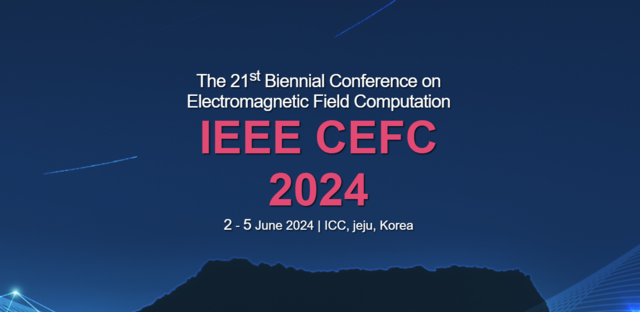
The IGTE is contributing to the CEFC 2024 with the following contributions:
- Surrogate Model-Based Synthesis of NFC-Transponders
Christoph Koger1, Eniz Museljic1, Thomas Bauernfeind1,2, and Alice Reinbacher-Köstinger1 - Surrogate-Based Optimization of SMT Inductors
Christian Riener1,2, Alice Reinbacher-Köstinger1, Thomas Bauernfeind1,2, Samuel Kvasnicka1,2, Klaus Roppert1,2, and Manfred Kaltenbacher1,2 - State Space Modelling of Microstrip Lines
Lukas Quehenberger1,2, Christian Riener1,2, and Thomas Bauernfeind1,2
1Institute of Fundamentals and Theory in Electrical Engineering, Graz University of Technology, Austria
2TU-Graz SAL GEMC Lab, Silicon Austria Labs, Austria
HYSTERESIS IN FUNCTIONAL MATERIALS: FROM PHYSICAL MODELS TO NUMERICAL SIMULATION
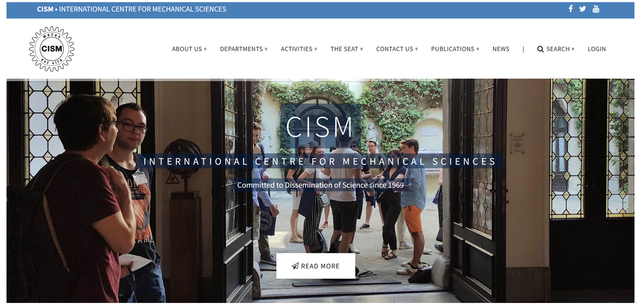
We organize the PhD course HYSTERESIS IN FUNCTIONAL MATERIALS: FROM PHYSICAL MODELS TO NUMERICAL SIMULATION at the famous International Centre of Computational Mechanics (CISM), Udine Italy. The hysteretic behavior of certain materials provides the basis for the design of many of today’s “smart” systems. Prominent examples are ferroelectric and ferromagnetic materials, which have been adopted as sensors and actuators in diverse fields of applications, ranging from microelectromechanical systems (MEMS) for high-precision positioning to vibrational and structural noise control as well as hearing aids. For details, click here.
AIAA/CEAS Aeroacoustics 2024
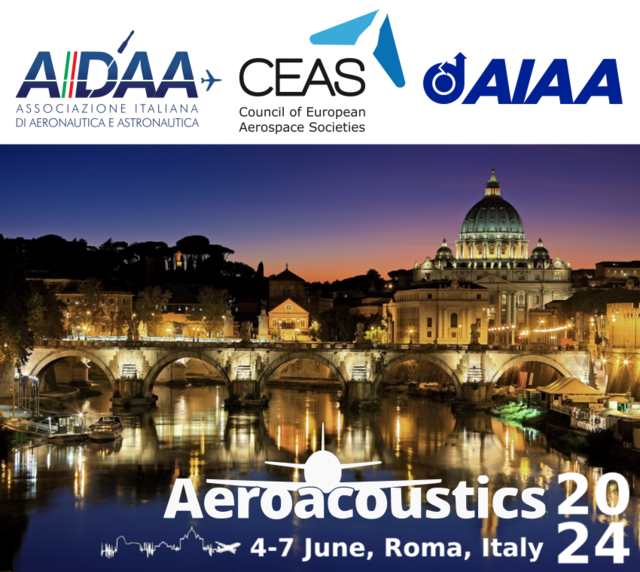
The IGTE is contributing to the AIAA/CEAS Aeroacoustic Conference in Rome with the following contributions:
- Development of a Didactic Demonstrator for Aeroacoustic Evaluations of Ducts
Stefan Schoder; Dominik Mayrhofer; Florian Kraxberger; Patrick Heidegger; Andreas Wurzinger; Felix Czwielong; Paul Maurerlehner - Similitude for Vibroacoustic Coupling Models With Geometric Distortion
Giada Cardellino; Christian Adams; Stefan Schoder; Francesco Franco; Giuseppe Petrone; Sergio De Rosa - Experimental Investigations of the Aeroacoustic Interactions of Fan Blade Skew, Leading Edge Serrations and Inflow Turbulence
Felix Czwielong; Christof Ocker; Lorenzo Tieghi; Giovanni Delibra; Valerio Barnabei; Stefan Schoder; Alessandro Corsini; Stefan Becker
ACES 2024
Das IGTE war beim ACES Symposium 2024 in Orlando, Florida mit folgenden Beiträgen in der Session „Numerical Methods in EMC“, chaired by Thomas Bauernfeind and Lloyd Riggs vertreten:
- Broadband Modeling of Mutual Coupling between Surface-Mounted Devices
Christian Riener, Thomas Bauernfeind, Manfred Kaltenbacher - Near Field Electromagnetic Interference Coupling-Mechanisms of Multilayer Ceramic Capacitors
Dominik Kreindl, Thomas Bauernfeind, Bernhard Weiss, Christian Stockreiter, Manfred Kaltenbacher - Model Order Reduction Approach for PCB Structures based on Semi-discretized Darwin Model using FEM
Samuel Kvasnicka, Klaus Roppert, Christian Riener, Thomas Bauernfeind, Manfred Kaltenbacher - Using the Darwin Approximation for Equivalent Circuit Parameter Extraction with Frequency-dependent Linear Materials
Klaus Roppert, Samuel Kvasnicka, Mehdi Hatab, Thomas Bauernfeind
DAGA 2024

The IGTE is contributing to the DAGA 2024 with the following contributions:
- Strömungsakustik: Theorie und Benchmarking (Stefan Schoder¹)
- Exploring Sensitivity: The Effect of Varying Data Points on the Agreement Between Numerical and Theoretical Results (Giada Cardellinoa², Robert Feldmann², Christian Adams¹, Giuseppe Petrone³, Francesco Franco³ und Sergio De Rosa³
- Improving the model-based predicted admittance of vehicles using Bayesian parameter calibration (Wei Xu², Michael Trost⁴, Robert Feldmann², Christian Adams¹ und Tobias Melz²,⁵)
- Frequency-Dependent Sound Power Estimation: A Comparative Study on a Baffled Plate (Yaxiong Ren², Robert Feldmann², Christian Adams¹ und Tobias Melz²,⁵)
- Sound Source Identification at the Rolling Tire Using an Inverse Scheme (Jonathan Nowak⁶ und Manfred Kaltenbacher¹)
- A Community Call to contribute to the Benchmarking - Examples and Datasets in Computational Acoustics hosted by the EAA-TC Computational Acoustics (Stefan Schoder¹, Marcus Mäder⁷, Steffen Marburg⁷ und Manfred Kaltenbacher¹)
- Simulation of MEMS speakers using the linearized flow equations with Maxwell slip boundary conditions (Dominik Mayrhofer¹, Tobias Wilczacki¹ und Manfred Kaltenbacher¹)
- Assessment of Vibro-Acoustic Sound Emissions based on Structural Dynamics (Andreas Wurzinger¹, Florian Kraxberger¹, Bernhard Mayr-Mittermüller⁸, Péter Rucz⁹, Harald Sima⁸, Manfred Kaltenbacher¹ und Stefan Schoder¹)
- Design of Acoustic metamaterials for broadband sound (Manfred Kaltenbacher¹, Dominik Mayrhofer¹, Benedikt Langeder¹ und Stefan Schoder¹)
- Time-Domain Simulation of an Anechoic Duct Termination with Mean Flow (Patrick Heidegger¹, Felix Czwielong¹⁰, Paul Maurerlehner, Stefan Schoder¹, Stefan Becker¹⁰ und Manfred Kaltenbacher¹)
- Modeling the Acoustic Effect of Porous Materials with Physics-Informed Neural Networks (Florian Kraxberger¹, Eniz Museljic¹, Andreas Wurzinger¹, Manfred Kaltenbacher¹ und Stefan Schoder¹)
¹ TU Graz, Institut für Grundlagen und Theorie der Elektrotechnik (IGTE)
² TU Darmstadt, Fachgebiet SAM
³ University of Naples Federico II, Department of Industrial Engineering
⁴ BMW Group
⁵ Fraunhofer LBF
⁶ AIT Austrian Institute of Technology
⁷ TU München, Lehrstuhl für Akustik mobiler Systeme
⁸ Otto Bock Healthcare Products GmbH
⁹ Budapest University of Technology and Economics
¹⁰ FAU Erlangen, Lehrstuhl für Strömungsmechanik

Computational Aeroacoustics, IV
26th - 27th March 2024
TU Wien, Building BA, Getreidemarkt 9, 1060 Wien, Austria
Florian Toth, Stefan Schoder, and Christophe Bogey are organizing a specialized course in computational aeroacoustics at TU Wien. This course is intended for researchers in industry and in academia including Ph.D. Students with a good knowledge of fluid mechanics would like to build up or widen their knowledge in the field of aeroacoustics (modeling, computational tools, and industrial applications). It will provide a comprehensive overview of aeroacoustics theories:
- Lighthill analogy and vortex sound theory,
- FWH analogy,
- hybrid approaches,
- wave extrapolation methods,
- duct acoustics
and of the issues of the direct computation of aerodynamic noise using CFD methods:
- Large Eddy Simulation,
- Lattice-Boltzmann Method
A number of practical problems involving the coupling between CFD and CAA will be also thoroughly discussed (e.g. how design a mesh size for aeroacoustics applications, inclusion of mean flow effects via hybrid formulations such as the acoustic perturbation equations, presence of surfaces, aero-acoustic couplings) and realistic applications performed by the instructors (aeronautics, car industry, propulsion, energy) will be discussed. Advanced computational aeroacoustics methods, as well as what we can learn from the direct computation of aerodynamic noise, will also be presented. Finally, specific topics reflecting participant interests will be discussed.
Lecturers
- Dr Christophe Bogey, Ecole Centrale de Lyon, France
- Prof Gwenael Gabard, LAUM, Le Mans Université, France
- Dr Denis Ricot, CS Group, France (to be confirmed)
- Prof Stefan Schoder, TU Graz, Austria
- Prof Wolfgang Schröder, Institute of Aerodynamics, Aachen, Germany
More information can be found here.
ÖGR 2023

The IGTE is contributing to the 2nd Annual Conference of the Austrian Society for Rheology by the following contribution:
- Shear-induced electrical conductivity changes in disturbed internal flow of human blood
Alice Reinbacher-Köstinger, Vahid Badeli, Alireza Jafarinia, Thomas Hochrainer, Günter Brenn and Manfred Kaltenbacher
The presentation was awarded the best poster.
openIGTE
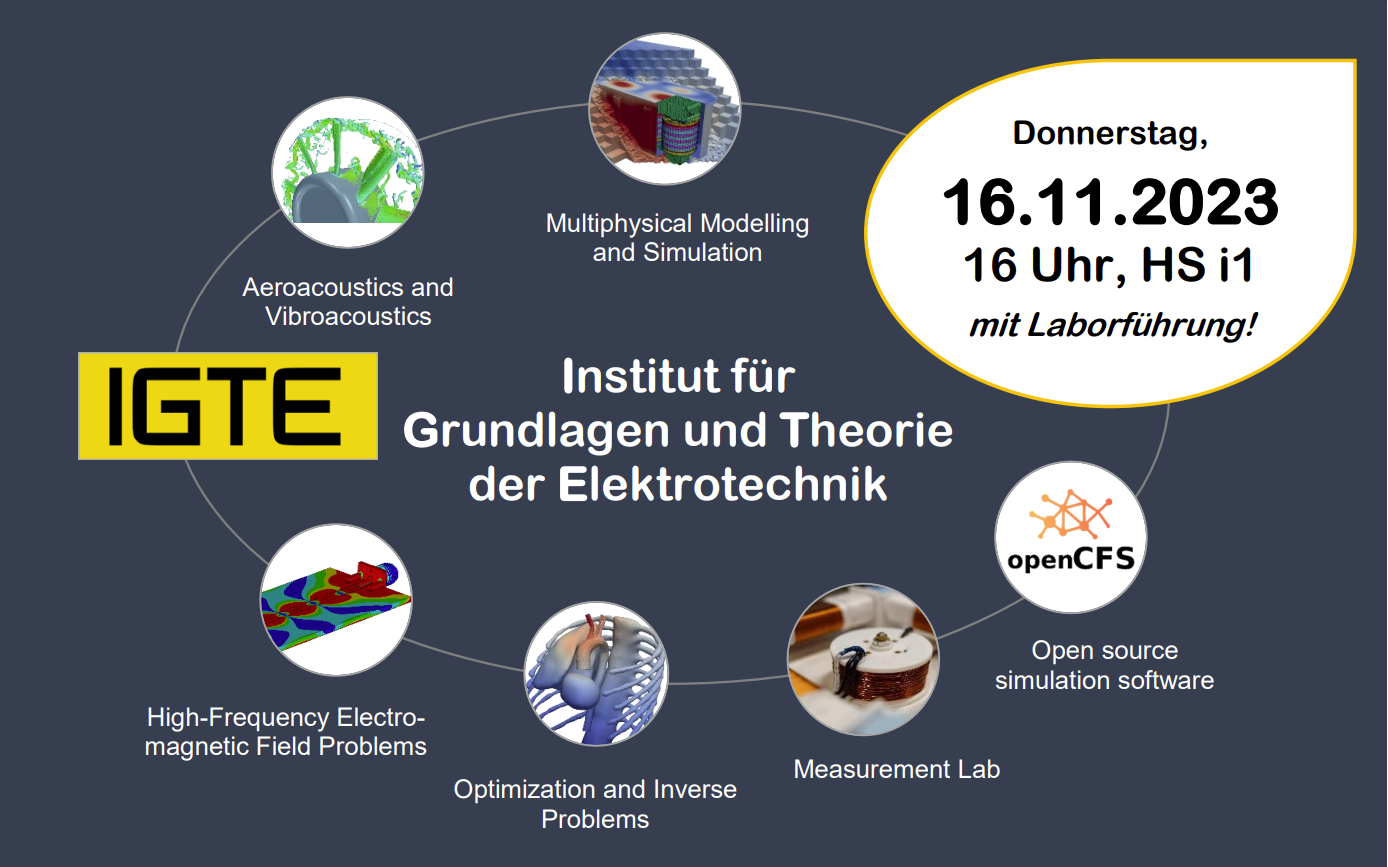
Vorstellung aktueller Projekte und Lehrveranstaltungen am IGTE
Infoabend über Forschung und Lehre am IGTE mit Laborführung und gemütlichem Ausklang am 16.11.2023 ab 16:00 Uhr im HS i1.
|
16:00 Uhr |
Vorstellung aktueller Projekte und Lehrveranstaltungen für Studierende |
|
16:45 Uhr |
Laborführung: Mess-Systeme aus dem Bereich der Elektromagnetik und Akustik |
|
17:30 Uhr |
Gemütlicher Ausklang im Foyer des HS i1 und am Vorplatz (je nach Wetter) mit der Möglichkeit, mehr zu den einzelnen Projekten zu erfahren |
Wir freuen uns auf den persönlichen Austausch mit interessierten Studierenden,
aus den Studienrichtungen:
|
• Elektrotechnik |
• Digital Engineering |
NVHH 2023

The IGTE has contributing to NVHH 2023 by the following plenary talk:
- Aeroacoustics of confined flows and the radiation to the surroundings
Manfred Kaltenbacher
OIPE 2023

The IGTE was the host of the OIPE 2023 and has also contributed the following:
- Adjoint Method for Inverse Problems in Electromagnetics
(Manfred Kaltenbacher, Barbara Kaltenbacher1, Andreas Gschwentner, Stefan Ulbrich2, Alice Reinbacher-Köstinger)
1University of Klagenfurt, 2TU Darmstadt, Germany - Surrogate Based Optimization of SMT Ferrite Beads for EMI Filters
(Christian Riener, Alice Reinbacher-Köstinger, Eniz Museljic, Thomas Bauernfeind, Manfred Kaltenbacher) - Comparison of a quasi Newton method using Broyden's update formula and an adjoint method for determining local magnetic material properties of electrical steel sheets
(Andreas Gschwentner, Manfred Kaltenbacher, Barbara Kaltenbacher1, Klaus Roppert)
1University of Klagenfurt - Optimization of the Sensor Positions of a Measurement System for the Determination of Local Magnetic Material Properties
(Alice Reinbacher-Köstinger, Andreas Gschwentner, Eniz Museljic, Christian Magele, Manfred Kaltenbacher)
EMC Europe 2023

The IGTE is contributing to the EMC Europe 2023 with the following contributions:
- Broadband 3D Modeling and Simulation of DC-Biased SMT Ferrite Beads for EMI Filters
(Christian Riener, Thomas Bauernfeind, Klaus Roppert, Samuel Kvasnicka, Bernhard Auinger, Manfred Kaltenbacher) - Measurement and Simulation Methodology for Characterizing the Shielding Effectiveness of Coating Materials for Optical Sensors
(Dominik Kreindl, Bernhard Weiss, Christian Stockreiter, Thomas Bauernfeind, Manfred Kaltenbacher, Martin Faccinelli)
 |
 |
Forum Acusticum 2023
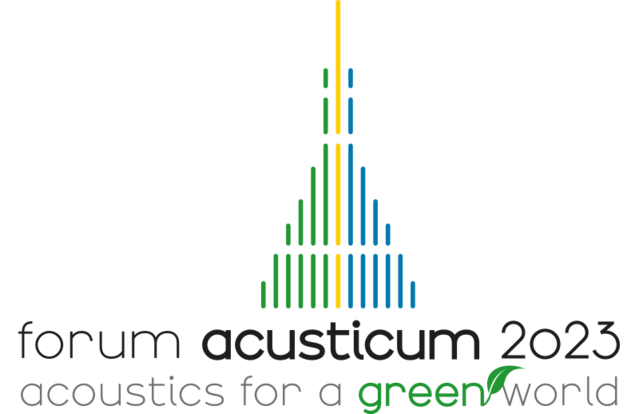
The IGTE is contributing to the Forum Acusticum in Torino with the following contributions:
-
Discontinuous Galerkin methods for the acoustic conservation equations with application to aeroacoustic
(Johannes Heinz, Manfred Kaltenbacher)Post-processing flows using physics-informed neural networks
(Stefan Schoder, Florian Kraxberger, Eniz Museljic, Andreas Wurzinger)Optimization of damping properties of acoustic MEMS shutter devices
(Dominik Mayrhofer, Manfred Kaltenbacher)The Nonlinear Eigenfrequency Problem of Room Acoustics with Porous Edge Absorbers
(Florian Kraxberger, Eniz Museljic, Eric Kurz, Florian Toth, Manfred Kaltenbacher, Stefan Schoder)Using eigenmode forcing to investigate flow instability mechanisms causing whistling sound
(Andreas Wurzinger, Bernhard Mayr-Mittermüller, Manfred Kaltenbacher, Stefan Schoder)
ICTCA 2023

The IGTE is contributing to the ICTCA 2023 with the following contributions:
- Plenary Computational Aeroacoustics of confined flows
(Stefan Schoder) - Session Computational acoustics
(chaired by Stefan Schoder) - Simulating the Fluid-Structure-Acoustic Interaction of the Confined Flow in a Centrifugal Fan
(Patrick Heidegger) - Finite element time domain equivalent fluid model for the acoustic wave equation
(Paul Maurerlehner)
AIAA Aviation 2023

The IGTE is contributing to the AIAA Aviation 2023 with the following contribution:
- Acoustic Modeling Using the Aeroacoustic Wave Equation Based on Pierce’s Operator
(Stefan Schoder, Étienne Spieser, Hugo Vincent, Christophe Bogey, and Christophe Bailly)
(Doi-Link) - Post-processing subsonic flows using physics-informed neural networks
(Stefan Schoder, Eniz Museljic, Florian Kraxberger and Andreas Wurzinger)
(Doi-Link)
Compumag 2023: Rita Trowbridge Award finalist

The Rita Trowbridge memorial award is given every two years to young researchers presenting their work at the Compumag conference by a committee of the International Compumag Society. This year, Dominik Mayrhofer received commendation as one of the six finalists for the award on May 26th in Kyoto, Japan, for his contribution with the title "Visualization of physical fields with augmented reality in teaching". Dominik Mayrhofer is a doctorate student at the Institute of Fundamentals and Theory in Electrical Engineering. He primarily works on numerical methods for multi-physical simulations of Micro-Electro-Mechanical-Systems (MEMS). Besides multiphysics, he invests much time in teaching and methods to improve the learning experience. The tool developed within this contribution enables the visualization of complex physical fields with augmented reality (AR).
The project, including documentation, can be downloaded and used free of charge for students/educational purposes and is available for other lecturers via GitLab.
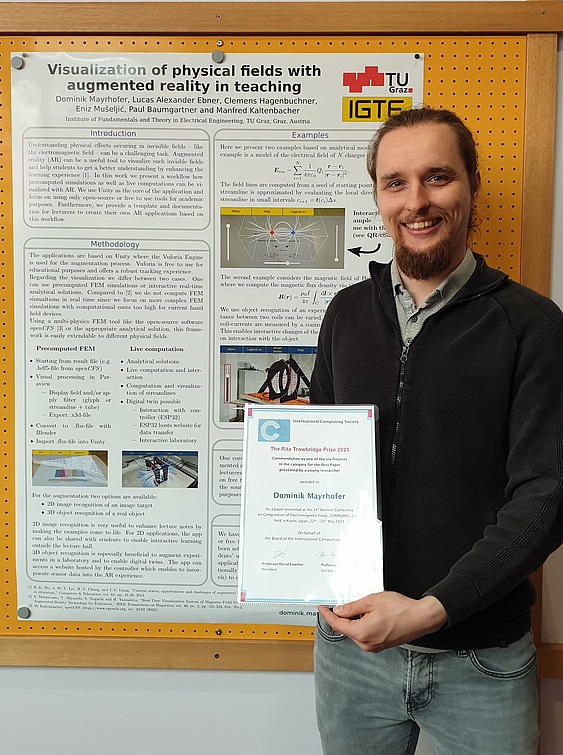
Compumag 2023

The IGTE is contributing to the Compumag 2023 with the following contributions:
- An Improved 3D MHD Equilibrium Formulation (Oszkar Biro, Pietro Testoni, Alfredo Portone)
- Determination of Local Magnetic Material Properties using an Inverse Schemen (Andreas Gschwentner, Klaus Roppert, Manfred Kaltenbacher)
- Visualization of physical fields with augmented reality in teaching (Dominik Mayrhofer, Lucas Alexander Ebner, Clemens Hagenbuchner, Eniz Mušeljić, Paul Baumgartner, Manfred Kaltenbacher)
- Employing AutoDiff and Neural Networks for Parameter Identification of Energy Based Hysteresis Models (Eniz Mušeljić, Klaus Roppert, Alice Reinbacher-Köstinger, Manfred Kaltenbacher)
- Design Optimization of a Sensor-Actuator System to Determine Local Variations of Magnetic Permeability (Alice Reinbacher-Koestinger, Andreas Gschwentner, Klaus Roppert, Eniz Mušeljić, Manfred Kaltenbacher)
- Evaluation of an Analytical Equivalent Hertzian Dipole Representation in TEM-Cells applying the Finite Element Method (Dominik Kreindl, Thomas Bauernfeind, Bernhard Weiss, Christian Stockreiter, Manfred Kaltenbacher)
- Identification of Parameters to correctly adapt Energy-Based Hysteresis Models regarding Rotational Losses (Lukas Daniel Domenig, Klaus Roppert, Andreas Gschwentner, Alexander Sauseng, Manfred Kaltenbacher)
- Multi-Objective Optimization of NFC-Systems: Voltage-Dependent Nonlinear Circuits and their Influence on the System Quality-Factor (Thomas Bauernfeind, Theo Gruber, Samuel Kvasnicka, Eniz Museljic, Alice Reinbacher-Köstinger
- Non-Conforming Isogeometric Nitsche Formulation for the Simulation of Electric Motors (Melina Merkel, Andreas Gschwentner, Klaus Roppert, Sebastian Schöps)
- Broadband Modeling and Simulation of DC-Biased SMT Components in EMI Filters (Christian Riener, Thomas Bauernfeind, Samuel Kvasnicka, Klaus Roppert, Manfred Kaltenbacher)
Ehrung der besten Studierenden am IGTE
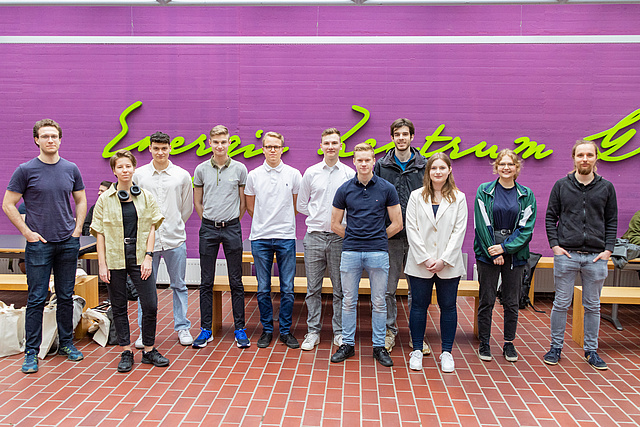
vlnr. Eniz Museljic (Lehrender), Olga Gorbunova, Florian Weger, Michael Karl Möstl, Paul Wohlmuther, Philipp Alexander Gruber, Christoph Hannes Obenaus (vorne), Felix Klinglmair (hinten), Lilian Bruss, Chiara Sophie Tschuden, Dominik Mayrhofer (Lehrender) – nicht am Bild: Florian Maderecker
(c) Daniel Sittlinger, TU Graz
Um die außergewöhnlichen Studienleistungen zu würdigen, wurden nach Beendigung des Wintersemesters die besten Studierenden der Grundlagen der Elektrotechnik Übung geehrt. Die Würdigung bestand dabei aus einer Urkunde und wahlweise Kernöl, Wein oder Bier.
Die Kolleg:innen haben durch außergewöhnliche Klausurleistungen und guter Mitarbeit während des Semesters bewiesen, dass sie sich mit dem Lehrstoff intensiv auseinandergesetzt haben, und diesen auch umfassend verstanden haben.
Wir gratulieren nochmals den Preisträger:innen und wünschen auch weiterhin viel Erfolg im Studium!
Rückblick openIGTE 2023

Am 11.05.2023 stellte sich das Institut im Rahmen des "openIGTE" vor. Zu Beginn wurden die vier Arbeitsgruppen "Aeroacoustics and Vibroacoustics", "High-Frequency Electromagnetic Fields", "Multiphysical Modeling and Simulation" sowie "Optimization and Inverse Problems" im Rahmen eines Vortrages vorgestellt. Weiters wurde auch die vom Institut angebotenen Lehrveranstaltungen in diversen Vertiefungsmodulen eingegangen. Anschließend wurden bei einer Laborführung mehrere Versuchsstände vorgeführt.
Die Aufbauten umfassten dabei folgende Themengebiete:
- Messung und Charakterisierung von Elektroblechen (links oben)
- Bestimmung der Leitfähigkeit von Blut (rechts oben)
- Schallentstehung durch Luftströmung (links unten)
- Neue Methoden der Schallerzeugung (rechts unten)
Anschließend wurden im Foyer der Inffeldgasse 18 noch aktuelle Arbeiten für Studierende vorgestellt. Parallel dazu gab es die Möglichkeit, Einblicke in mit Augmented Reality (AR) gestützte Lehrmethoden des Institutes zu bekommen.
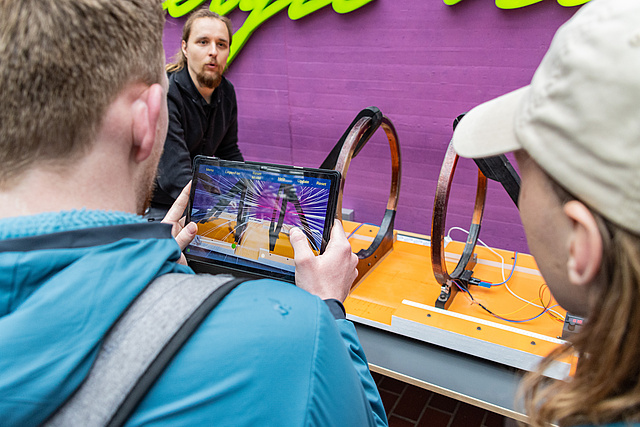
Zum Schluss ließen wir den Abend mit interessanten Gesprächen und erfrischenden Getränken gemütlich ausklingen.
openIGTE
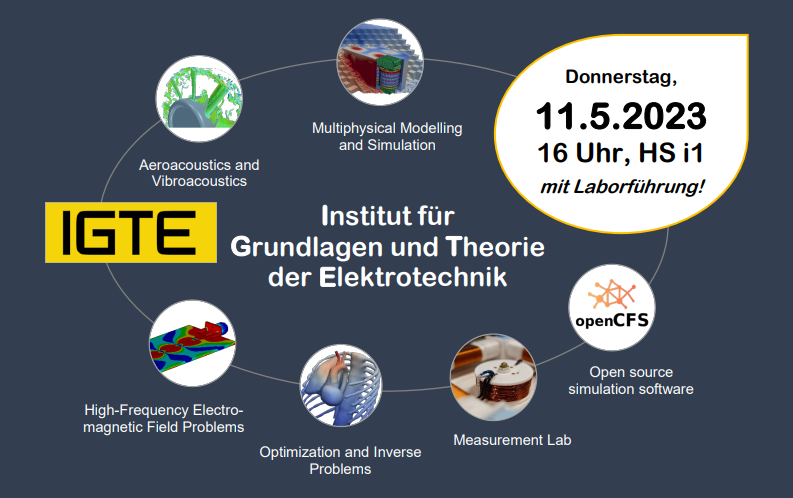
Vorstellung aktueller Projekte und Lehrveranstaltungen am IGTE
Infoabend über Forschung und Lehre am IGTE mit Laborführung und gemütlichem Ausklang am 11.5.2023 ab 16:00 Uhr im HS i1.
|
16:00 Uhr |
Vorstellung aktueller Projekte und Lehrveranstaltungen für Studierende |
|
16:45 Uhr |
Laborführung: Mess-Systeme aus dem Bereich der Elektromagnetik und Akustik |
|
17:30 Uhr |
Gemütlicher Ausklang im Foyer des HS i1 und am Vorplatz (je nach Wetter) mit der Möglichkeit, mehr zu den einzelnen Projekten zu erfahren |
Wir freuen uns auf den persönlichen Austausch mit interessierten Studierenden,
z.B. aus den folgenden Studienrichtungen:
|
• Elektrotechnik |
• Digital Engineering |
Research Seminar 01.03.2023
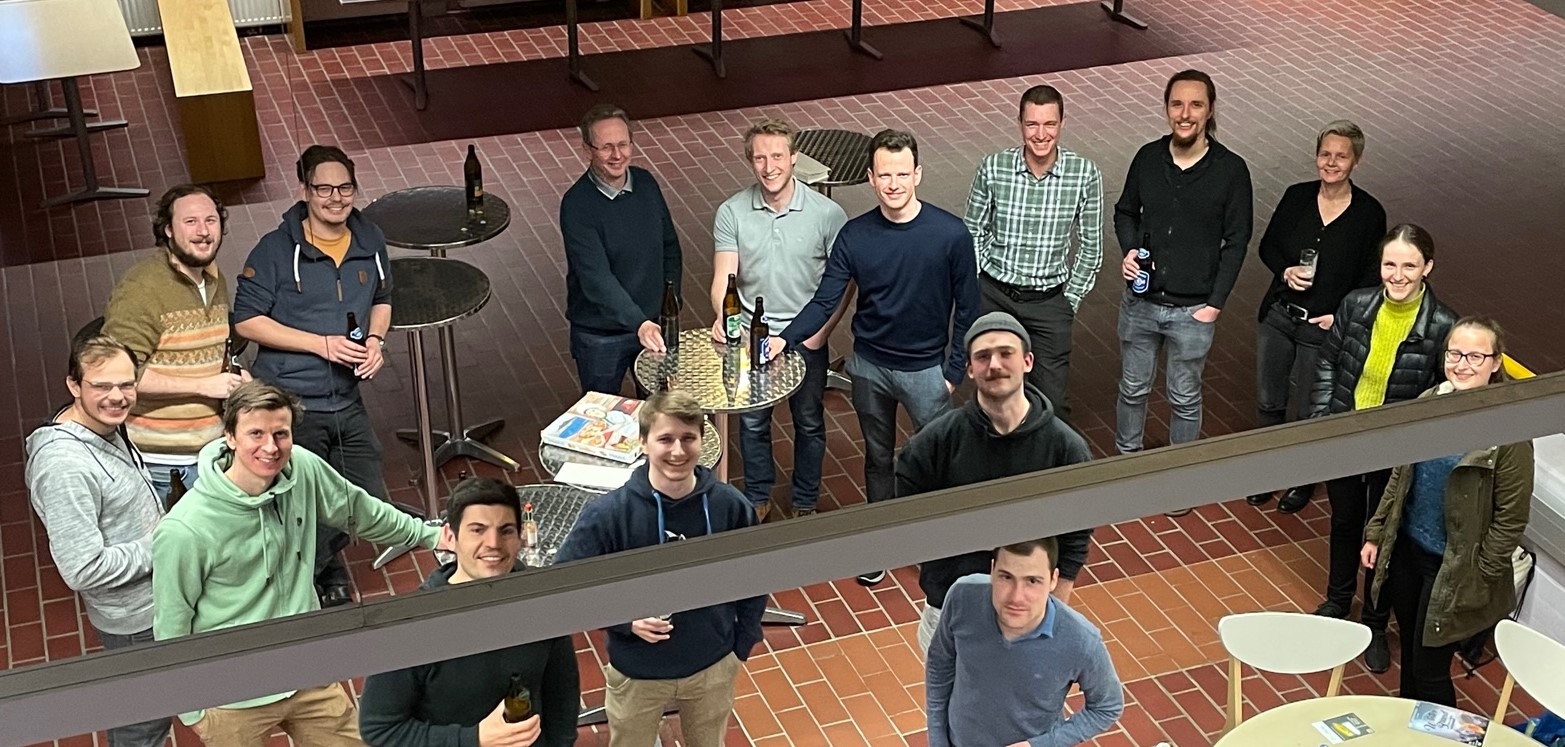
The team at IGTE has regular internal research seminars where PhD candidates of all four scientific areas present their current work to the rest of the team, ensuring scientific exchange within the team. In March 2023, we held the first research seminar dedicated to our young scientists (student project assistants). Since our team currently includes around 12 student project assistants, the seminar consisted of enough talks for a 5-hour official program where our young scientists presented their research in a similar framework to a conference. The goal of this seminar was to introduce our young scientists to presenting their research in a larger group, incorporate them better in the team, and value their hard work. Finally, we ended the seminar and let the evening end by enjoying some pizza and drinks in the foyer at Inffeldgasse 18.
CEM 2023
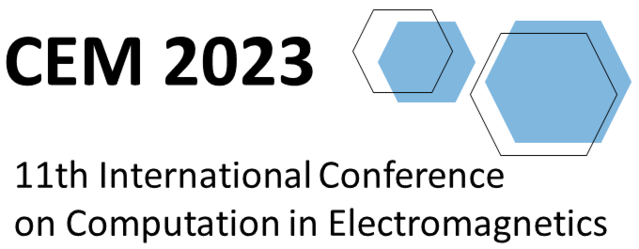
The IGTE is contributing to the CEM 2023 with the following contributions:
- Review of optimization methods (Christian Magele, invited talk)
- Inverse scheme to determine local variations of magnetic permeability (Manfred Kaltenbacher, Andreas Gschwentner, Klaus Roppert, Alice Reinbacher-Koestinger)
- Determination of the reversible and irreversible magnetic field based on rotational single sheet measurements (Klaus Roppert, Lukas Domenig, Andreas Gschwentner, Alexander Sauseng, Manfred Kaltenbacher)
DAGA 2023
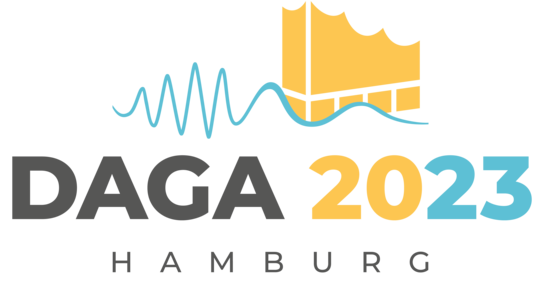
The IGTE is contributing to the DAGA 2023 with the following contributions:
- Numerical methods of Computational Aeroacoustics with a focus on the Hybrid Approach (Stefan Schoder und Paul Maurerlehner)
- A time domain equivalent fluid model for the acoustic wave equation (Paul Maurerlehner, Stefan Schoder und Manfred Kaltenbacher)
- Automatically Matched Layer: Implementation and Evaluation (Patrick Heidegger und Manfred Kaltenbacher)
- Investigating vibroacoustic sound emission of a clinically applied knee prosthesis (Andreas Wurzinger, Bernhard Mayr-Mittermüller¹, Harald Sima¹, Manfred Kaltenbacher und Stefan Schoder)
- Finite Element Simulation of Edge Absorbers for Room Acoustic Applications (Florian Kraxberger, Eric Kurz², Leon Merkel, Manfred Kaltenbacher und Stefan Schoder)
- Numerical flow noise simulation of an axial fan with a Lattice-Boltzmann solver (Evangelos Antoniou³, Stefan Schoder und Felix Czwielong⁴)
- Aeroakustische Analyse der menschlichen Stimmentstehung im numerischen Modell (Stefan Kniesburges⁵, Sebastian Falk⁵, Bernhard Jakubaß⁵, Paul Maurerlehner, Stefan Schoder, Manfred Kaltenbacher, Matthias Echternach⁶, Anne Schützenberger⁵ und Michael Döllinger⁵)
- Kontrollierte Versuchsbedingungen für die strömungsakustische Charakterisierung von Radialventilatoren (Felix Czwielong⁴, Thomas Uffinger⁴, Stefan Schoder, Patrick Heidegger, Manfred Kaltenbacher und Stefan Becker⁴)
- High-Order Discontinuous Galerkin Methods for the Acoustic Conservation Equations on Moving Meshes (Johannes Heinz⁷, Niklas Fehn⁸ und Manfred Kaltenbacher)
- Simulation of MEMS devices using linearized compressible flow equations on moving domains (Dominik Mayrhofer und Manfred Kaltenbacher)
¹ Otto Bock Healthcare Products GmbH
² Institut für Signalverarbeitung und Sprachkommunikation (SPSC)
³ Dassault Systèmes Deutschland GmbH
⁴ Lehrstuhl für Strömungsmechanik - FAU Erlangen
⁵ Universitätsklinikum Erlangen
⁶ LMU Klinikum, Abteilung Phoniatrie und Pädaudiologie
⁷ TU Wien, Institut für Mechanik und Mechatronik
⁸ TU München, Lehrstuhl für Numerische Mechanik
OIPE 2023

The 17th International Workshop on Optimization and Inverse Problems in Electromagnetism 2023 will be held on September 17-20, 2023, in Graz and is organized by IGTE.
The aim of OIPE 2023 is to discuss and share recent developments in optimization and inverse methodologies and their applications to the design and working principle of electromagnetic devices. A special focus will be put on machine learning techniques and optimal energy management. Please find the call for papers and the detailed list of scientific topics on the OIPE 2023 Website.
Additionally, after the workshop, a one-day doctoral course is scheduled. International experts will teach PhD students and researchers entering the field in selected aspects.
We are looking forward to meeting you in Graz in autumn 2023!
50 Jahre Elektrotechnik-Toningenieur
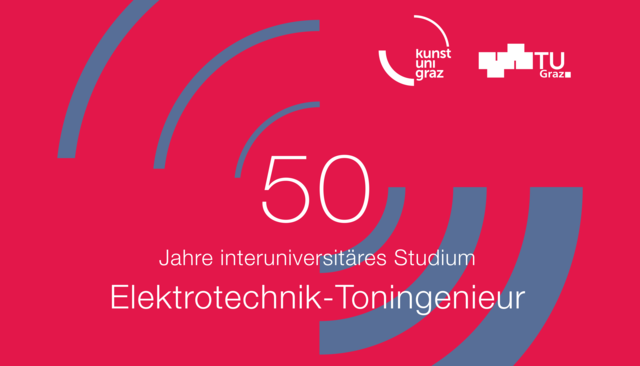
Open Lab Day am 28.10.2022
Im Rahmen der Feierlichkeiten anlässlich des Jubiläums „50 Jahre Elektrotechnik-Toningenieur“, nahm das IGTE am „Open Lab Day“ mit zwei demonstrativen Aufbauten aus der Akustik-Forschung teil. Dominik Mayrhofer präsentierte anhand eines Demonstrator-Prüfstandes eine neue Methode der Schallerzeugung mit dem Titel „Advanced Digital Sound Reconstruction“. Stefan Schoder und Florian Kraxberger stellten den Aeroakustik-Prüfstand aus dem Dissertationsprojekt von Paul Maurerlehner vor. Bei den Besucher*innen stießen beide Aufbauten auf großes Interesse, was sich besonders in den vertiefenden Diskussionen zeigte.
neue Methode der Schallerzeugung - Advanced Digital Sound Reconstruction.
Um den stetig steigenden Ansprüchen der Endbenutzer an In-Ear Kopfhörer bezüglich ausreichend Schalldruck vor allem im tiefen Frequenzbereich bei kleinstmöglicher Bauweise gerecht zu werden, forschen wir an einer gänzlich neuen Methode der Schallerzeugung für Mikrolautsprecher. In dem präsentierten Versuchsaufbau wird das Grundprinzip makroskopisch demonstriert und auf die Besonderheiten der Umsetzung, sowie der Simulation von MEMS-Lautsprechern, eingegangen.
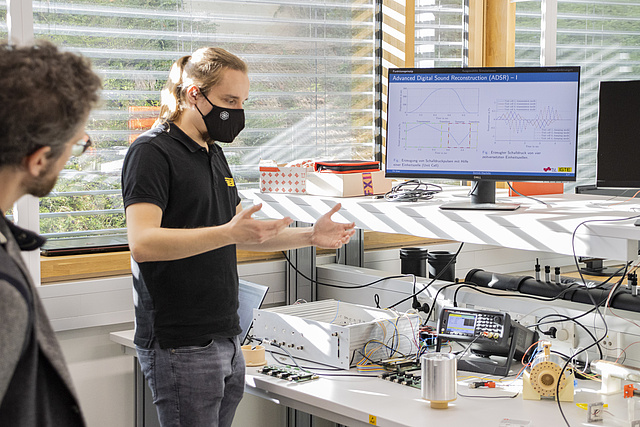 (c) Daniel Sittlinger, TU Graz
(c) Daniel Sittlinger, TU Graz
Den Schallquellen auf der Spur: Schallentstehung durch Luftströmung
Strömungsgeräusche begleiten uns Tag für Tag. Jeder kennt das Phänomen des "heulenden Windes", aber auch bei der menschlichen Stimme, bei Flugzeugen und Fahrzeugen tritt Schall auf, der durch verwirbelte Luftströmungen erzeugt wird. Dieses Phänomen nennt man Aeroakustik. Mit dem präsentierten Versuchsaufbau kann man messen, wie Schall durch einen verwirbelten Luftstrom in einem durchströmten Rohr entsteht, und wir gehen dabei auch auf die Besonderheiten bei der Simulation von aeroakustischen Problemen ein.
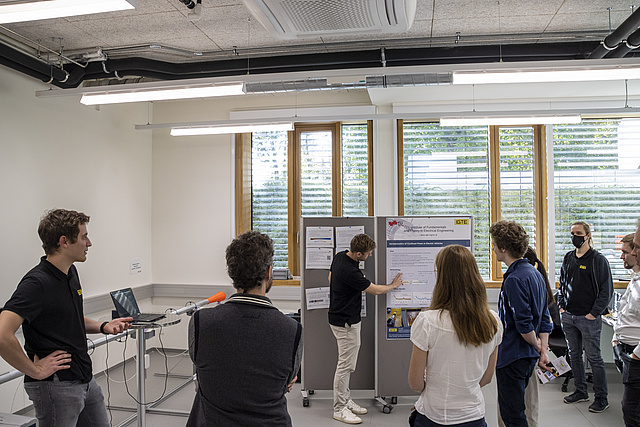 (c) Daniel Sittlinger, TU Graz
(c) Daniel Sittlinger, TU Graz
CMFF 2022
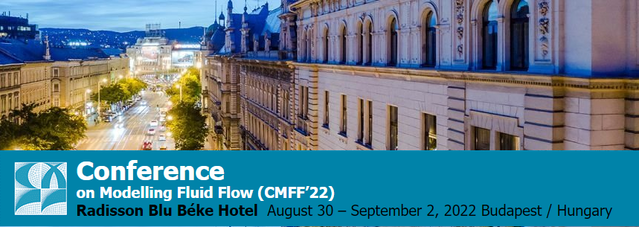
IGTE is contributing to CMFF with a plenary talk on State of art and challenges in computational aeroacoustics (Manfred Kaltenbacher).
WAVES 2022
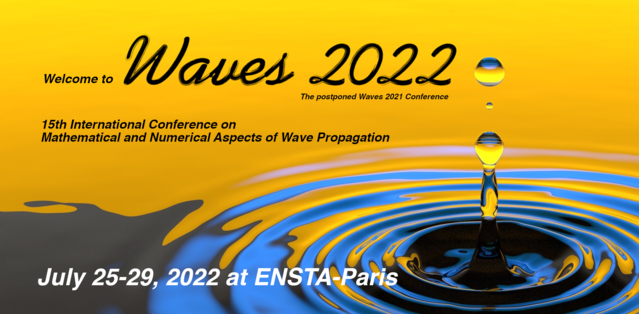
IGTE is contributing to WAVES 2022 with the following contribution:
- Non-conforming and moving grids for the simulation of waves in viscous fluids (M. Kaltenbacher, D. Mayerhofer, H. Hassanpour Guilvaiee, F. Toth)
Turbo Expo 2022
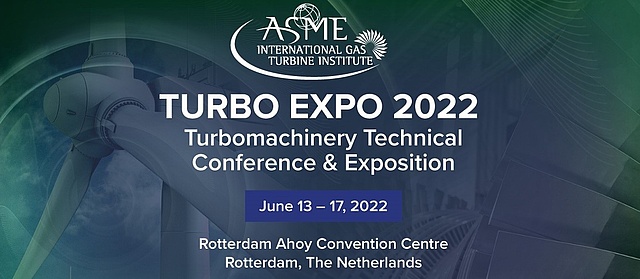
The IGTE is contributing to the 2022 Turbomachinery Expo and the Fan 2022 with the following contribution:
- Machine-Learning Clustering Methods Applied to Detection of Noise Sources in Low- Speed Axial Fan (L. Tieghi, S. Becker, A. Corsini, G. Delibra, Stefan Schoder, F. Czwielong)
- On the Fluid Mechanical and Acoustic Mechanisms of Serrated Leading Edges (S. Becker, J. Riedel, F. Czwielong, M. Kaltenbacher, S. Schoder)
AIAA 2022
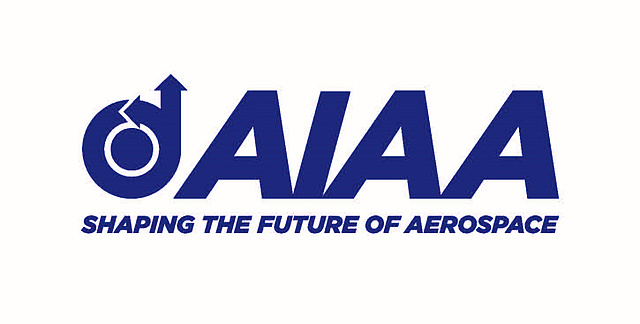
The IGTE is participating at the AIAA/CEAS Aeroacoustics with the following contribution:
- Aeroacoustic wave equation based on Pierce's operator applied to the sound generated by a mixing layer (Stefan Schoder, M. Kaltenbacher, H. Vincent, E. Spieser, C. Bogey, C. Bailly)
Next award for the GET team
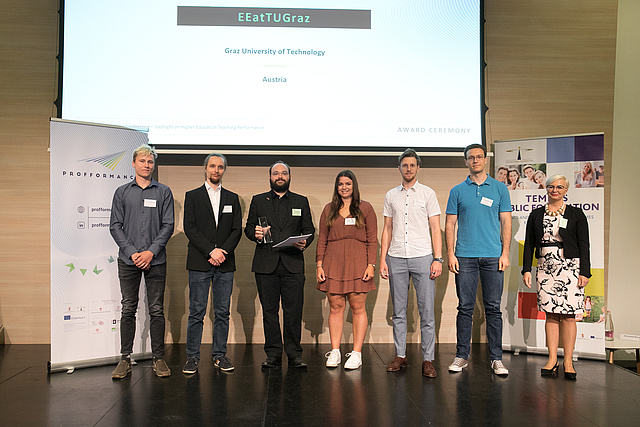
The Fundamentals of Electrical Engineering (GET) practice team was also able to convince the jury of the Profformance Higher Education Award and reached second place in the category "student-centered course design" from a total of 39 submissions in this category (130 in total).
The award ceremony took place on June 16th in Budapest. Besides the award ceremony, the Profformance Consortium presented their work in quality assurance of university teaching. Finally, all award winners presented their projects - this part was taken over by Paul Baumgartner with a short presentation. Through interesting speeches and discussions with teachers from 6 Central and Eastern European countries, the participants from Graz could take some impulses home. Thus, the GET practice team has received not only the award for excellent teaching of the Graz University of Technology, the Ars Docendi - State Award for University Teaching but also an international award.
Das Grundlagen der Elektrotechnik (GET) Übungsteam konnte auch die Jury des Profformance Higher Education Award überzeugen, und erreichte in der Kategorie "student-centered course design" den zweiten Platz von gesamt 39 Einreichungen in dieser Kategorie (130 insgesamt).
Die Verleihung dieses Preises fand am 16. Juni in Budapest statt. Neben der Preisverleihung stellte das Profformance Konsortium ihre Arbeit in der Qualitätssicherung der Hochschullehre vor. Zuletzt stellten alle Preisträger ihre Projekte vor - diesen Teil übernahm Paul Baumgartner mit einer kurzen Präsentation. Durch interessante Vorträge und Diskussionen mit Lehrenden aus 6 Mittel- und Osteuropäischen Ländern konnten die Teilnehmer:innen aus Graz auch einige Impulse mit nach Hause nehmen. Somit hat das GET Übungsteam neben dem Preis für exzellente Lehre der TU Graz, dem Ars Docendi – Staatspreis für universitäre Lehre auch einen internationalen Preis erhalten.
Tag gegen Lärm - International Noise Awareness Days 2022

Am 27. April 2022 veranstaltet die Österrichische Akademie der WIssenschaften den 25. Tag gegen Lärm - International Noise Awareness Days.
Mit dem Tag gegen Lärm soll ein Fokus auf Lärm als Umweltthema gelegt werden. Lärm im Alltag, speziell über längere Zeit, ist nicht nur lästig sondern beeinträchtigt auch die Gesundheit. Hohe Lärmbelastungen können im Allgemeinen zu Hörschädigungen führen. Aber auch bereits niedrigeren Pegeln führen zu Stress, Schlafstörungen und beeinträchtigen Konzentration und Kommunikation. Als eine kritische Grenze ab der Lärm bei Dauerbelastung für die menschliche Gesundheit zum Problem wird gilt dabei 50 dB(A) in der Nacht. Die besondere Dringlichkeit der Herausforderungen die mit Lärm einher gehen zeigt sich, wenn man bedenkt, dass alleine in Europa in etwa 50 Millionen Menschen in der Nacht dauerhaft mehr wie 50 dB(A) ausgesetzt sind.
Im Zuge dessen wird das IGTE TU Graz in Zusammenarbeit mit dem Institut für Mechanik und Mechatronik der TU Wien einen eigenen Stand am Tag gegen Lärm betreiben um strömungsakustische Phänomene plastische zu vermitteln und über aktuelle Forschungsprojekte im Bereich Strömungsmechanik zu berichten.
Ehrung der besten Studierenden am IGTE
Um die außergewöhnlichen Studienleistungen zu würdigen wurden nach Beendigung des Wintersemesters die besten Studierenden der Elektrodynamik und Grundlagen der Elektrotechnik Übung geehrt.
Die Kolleg:innen haben durch außergewöhnliche Klausurleistungen und guter Mitarbeit während des Semesters bewiesen, dass sie sich mit dem Lehrstoff intensiv auseinandergesetzt haben, und diesen auch umfassend verstanden haben.
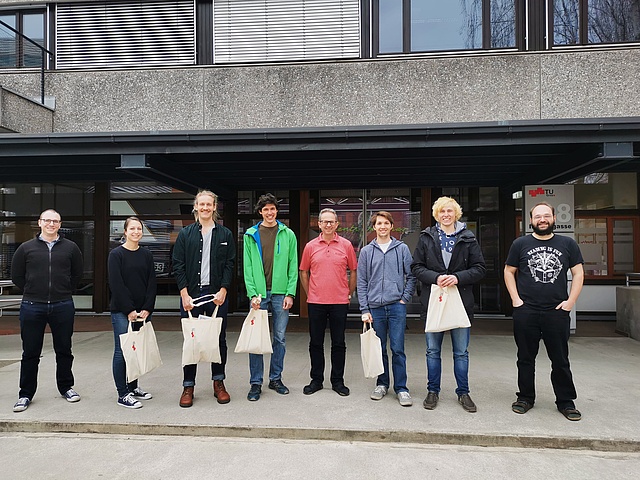
vlnr. Roppert Klaus (Lehrender), Julia Schönfelder, Jonas Thalmeier, Rene Denifl, Manfred Kaltenbacher (Institutsleiter), Markus Hannes Mayr , Lucas Alexander Ebner, Paul Baumgartner (Lehrender)
Foto: Zingerle – Fakultät ETIT
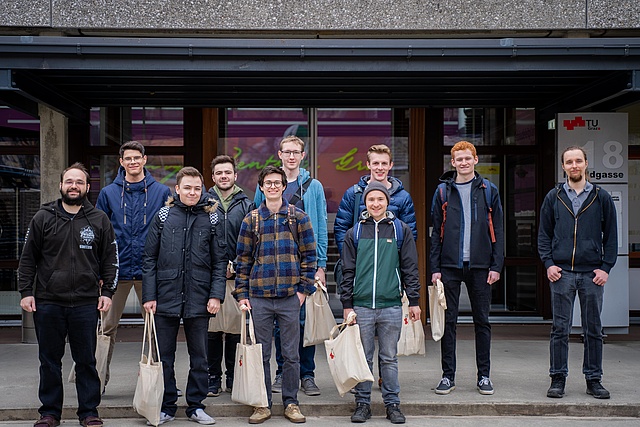
vlnr. Paul Baumgartner (Lehrender), Tobias Hraschan, Philipp Kraft, Patrick Rechberger, David Neururer (vorne), Sebastian Gsellmann (hinten), Matthias Dörflinger (vorne), Lukas Konrad Seidl(hinten), Jakob Kulmer, Dominik Mayrhofer (Lehrender) – nicht am Bild: Nikolaus Juch, Lukas Czipin
Foto: Museljic - IGTE
Die Würdigung, bestehend aus einer Urkunde und wahlweise Kernöl, Wein oder Bier wurde nun von allen in Empfang genommen.
Wir gratulieren nochmals den Preisträger:innen und wünschen auch weiterhin viel Erfolg im Studium.
DICUAM 2022

The IGTE is also participating at the Delft International Conference on Urban Air-Mobility DICUAM 2022 with the following contribution:
- Quantification of the acoustic emission of an electric ducted fan (Stefan Schoder, Jakob Schmidt, Andreas Fürlinger, Manfred Kaltenbacher)
DEGA-Akademie-Kurs "Strömungsakustik"
21.-24.02.2022 als Online-Kurs
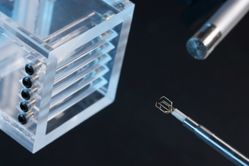
Nach mehreren erfolgreichen DEGA-Akademie-Veranstaltungen bietet die diesjährige Akademie Strömungsakustik ein neues überarbeitetes Konzept, das aus zwei Kursen esteht.
• Strömungsakustik 1 – Grundlagen, Auslegungen und industrielle Anwendungen
• Strömungsakustik 2 – Theorie, numerische Berechnungsverfahren und Anwendungen
Der hier beschriebene Kurs 1 lehrt die Strömungsakustik beginnend mit den Grundlagen bis zu den Anwendungen in kompakter und praxisnaher Form. Er richtet sich insbesondere an Entwicklungsingenieure, Ingenieure in Forschungs- und Hochschulinstituten, aber auch an Mitarbeiter in Beratungsfirmen und behördlichen Einrichtungen, die sich mit diesem Themenkomplex intensiv auseinandersetzen bzw. beschäftigen wollen.
Der Kurs gibt hierzu eine Einführung in das Gebiet des strömungsinduzierten Schalls. Er behandelt die grundlegenden Verfahren zur Bestimmung der aeroakustischen Lärmquellen, der Schallentstehung sowie der Ausbreitung und Wahrnehmung.
Es werden die Möglichkeiten des Einsatzes für industrielle Entwicklungsarbeiten behandelt.
In diesem Akademielehrgang konzentrieren sich die Anwendungen als Schwerpunkt auf Ventilatoren, Windenergieanlagen und Lüftungs- und Klimasysteme. Der Einsatz erstreckt sich über einen weiten Bereich von der Bauklimatisierung, dem Fahrzeugbau bis hin zu Anwendungen in der Kühlung von elektronischen und elektrischen Baugruppen. Die Vorlesungen werden von praxisnahen Online-Vorführungen begleitet
Weitere Informationen sowie die Möglichkeit zur Anmeldung finden Sie hier.
Compumag 2021: Rita Trowbridge award

The Rita Trowbridge memorial award was given this year to Niels Köster at the Compumag Conference at 20.01.2022 in Cancun - Mexico. The Rita Trowbridge award is given every 2 Years to young researcher presenting at the Compumag Conference by a Committee of the International Compumag Society. Niels Köster is a doctorate student at the Institute of Fundamentals and Theory in Electrical Engineering and a researcher at the Virtual Vehicle Research GmbH. He works on model order reduction methods applied to electromagnetic simulations, to find efficient models for e-mobility. These models are used in the design and optimal control of power electronic components in the electrical drive train.
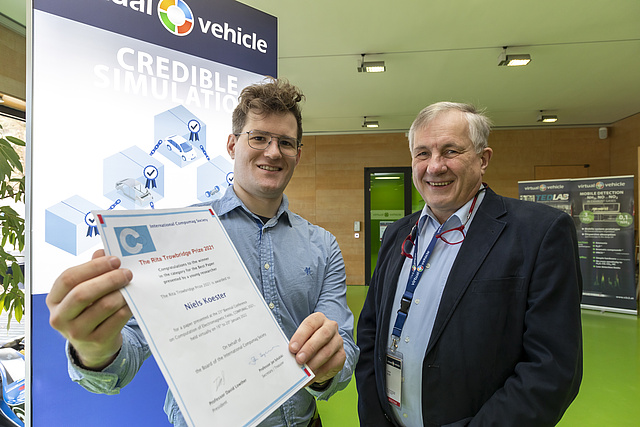
(c) Lungenhammer
Niels Köster: Fun with Research
On his journey from practical mathematics to theoretical electrical engineering, Niels Köster improved his scientific writing skills and discovered a love of (industry-related) research.
Niels Köster and research. It was not love at first sight, affirms the 31-year-old electrical engineer: “My very first paper was mercilessly rejected. I got three rejections in a row! I thought briefly of giving up my scientific career before it had even begun.” The Master’s programme in Mathematics at Graz University of Technology (TU Graz) is ultimately “a good springboard for a top career in industry”, says Köster. Instead, however, his journey led him to Virtual Vehicle, Europe’s largest research centre for virtual vehicle development. There he is part of the battery working group that uses numerical simulations and hardware tests to test new power electronics for electric cars. At the same time, he is writing his dissertation. His supervisor is TU Graz Professor Oszkar Biro at the Institute of Fundamentals and Theory in Electrical Engineering. This is not an unusual situation, especially since TU Graz is the majority owner of Virtual Vehicle and the two institutions work together on many research projects.
Game changer in e-mobility...
Köster is specifically working on transforming complex slow modelling methods such as the finite element method (FEM) into small but faster models without these models losing much accuracy. For this purpose, he uses the so-called model order reduction (MOR). This technique tries to capture the essential features of a model as early as possible. This means that the basic properties can already be recognized with very few variables. Subsequently, the complexity can be increased step by step in order to represent all properties of the model that are necessary for the use case.
“Time is money. My modelling is meant to help the industry to develop power components for e-mobility more quickly,” says Köster. So in layman’s terms, one could say that Köster’s work is a game changer in electromobility.
...and in scientific publishing
For Köster, the game changer for scientific publishing was ultimately the course “Effective scientific writing in English”. This is offered in the TU Graz internal continuing education programme. In the course, Köster learned methods that made scientific writing for specialist journals much easier for him. “Writing a Paper” by George Whitesides for example: “At the beginning of every research project I write a draft, which works like a project plan for publication. Throughout the research process, this draft is regularly revised if there are changes or new results,” says Köster, explaining his tactics.
Science prize as acknowledgement
This tactic works perfectly. At this year’s Compumag (note: one of the most important international conferences for the numerical calculation of electromagnetic fields), Köster received the Rita Trowbridge Award. The award is given only every two years to an emerging talent with the best conference paper. What is particularly remarkable is that the electrical engineer beat more than 150 other participants. A great success – also for the Institute of Fundamentals and Theory in Electrical Engineering, to which Köster dedicated the prize: “I am employed full-time at Virtual Vehicle, but at the same time I feel like an equal member of the institute.” Köster is fully integrated in the technical discussions and the day-to-day running of the institute, has weekly meetings with his supervisor Professor Biro, and “I can use simulation software developed at the institute for my work.”
Brake-block Covid
This team structure also helped him over the last two years, during which the Covid pandemic made research very difficult. Practically overnight, the personal exchange with other young researchers disappeared, also because almost all scientific conferences and meetings shifted to the internet. But: “Virtual interactions don’t work so well – partly because of the different time zones, partly because of the technical circumstances. During this time, I shifted my focus to researching and reading technical literature,” says Köster, who eagerly awaited the opening steps and also used the Compumag conference to set up an international working group focusing on model order reduction for electromagnetic fields. The cooperation is to run under the international Compumag Society.
A first meeting has already taken place, attended by colleagues from RWTH Aachen University, the University of Southampton, the Canadian McGill University and from the University of Pavia. “I need the social contact. The exchange with other researchers takes me further.”
And the winner is… Graz
But where to? The Hamburg native doesn’t know that yet. He can well imagine staying in Graz even after completing his doctoral thesis. And this despite the fact that he himself only decided to study at TU Graz at a late stage, as he explains: “After my matriculation, I had four universities on my short list that had a good reputation in technical and applied mathematics.” In the end, he opted for Graz and against Stuttgart, Bremen and Zurich. Also because of love, as he confesses. He quickly grew fond of the city with its leisure facilities and proximity to nature. He is currently looking for post-doctoral positions. After all, they say, love happens, but relationship is work – which apparently also pays off professionally.
Contact:
Niels Sören KÖSTER
Dipl.-Ing.
Virtual Vehicle | Battery Working Group, Department E
Phone: +43 316 873 4034
Email
Compumag 2021

Strong participation of IGTE at COMPUMAG conference 2021 https://www.compumag2021.com/, which has turned over to a pure virtual event held from 16th-20th January 2022, due to the Covid-19 pandemic. The contributions by IGTE are:
- Generating a Cauer Ladder Network Representation of Eddy Current Fields Using Scalar Potentials (Oszkar Biro and Niels Köster)
- Investigating voltage excitation of the Darwin model via the prescription of terminal scalar potentials (Klaus Roppert, Samuel Kvasnicka, Christian Riener, Thomas Bauernfeind, Manfred Kaltenbacher)
- Proper General Decomposition Method Applied to Periodic Nonlinear Eddy Current Problems (Niels Koester, Oszkar Biro)
- Comparison of Energy Based Hysteresis Models (Manfred Kaltenbacher, Klaus Roppert, Lukas Daniel Domenig, Herbert Egger)
- Comparing Two Network Transformer Hysteresis Models with Power Transformer Measurements (Dennis Albert, Lukas Domenig, Dragan Maletic, Alice Reinbacher-Köstinger, Klaus Roppert, Herwig Renner
- Application of FFT PEEC Method to Grounded Coplanar Waveguide Structures and Surface Mounted Multi-Layer Ceramic Capacitors (Christian Riener, Thomas Bauernfeind, Riccardo Torchio, Klaus Roppert, Samuel Kvasnicka, Paul Baumgartner, Manfred Kaltenbacher)
- Harmonic quasi-stationary modeling of coaxial cable impedance via Darwin approximation (Klaus Roppert, Susanne Bauer, Samuel Kvasnicka, Christian Tuerk, Manfred Kaltenbacher)
- Monitoring of False Lumen Thrombosis in Type B Aortic Dissection by Impedance Cardiography – A Multiphysical Simulation Study (Vahid Badeli, Alireza Jafarinia, Thomas Stephan Müller, Gian Marco Melito, Alice Reinbacher Köstinger, Thomas Hochrainer, Günter Brenn, Katrin Ellermann, Oszkar Biro, Manfred Kaltenbacher)
Elektrotechnik studieren an der TU Graz – eine gute Wahl
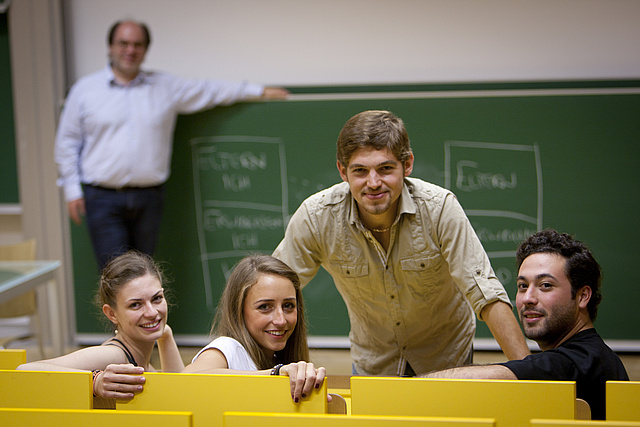
Du möchtest Elektrotechnik studieren? Die neugestaltete Seite der Fakultät für Elektrotechnik bietet jetzt noch mehr Informationen zum Studium, sowie Interviews mit Studierenden, Absolventen, sowie Vortragenden. Zu finden ist das ganze hier:
EPNC 2016 - XXIV Symposium
FEM-Workshop auf der Pack
Der jährlich stattfindende FEM-Workshop war heuer wieder auf der Pack. Am Wochenende vom 11.-13. September fanden sich sowohl ein Großteil der Instituts-Mitarbeiter als auch Forschungskollegen aus Ungarn und Slowenien ein. Trotz neuer Örtlichkeit sowie einem neuen Kessel wurde das Treffen zu einem vollen Erfolg und wir freuen uns schon auf ein Wiedersehen im Jahr 2016!
Institut für Grundlagen und Theorie der Elektrotechnik
Inffeldgasse 18
8010 Graz
Tel.: +43 (0) 316 / 873 - 7251
Email
